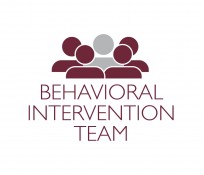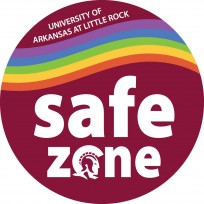Mission
Commitment to supporting educational opportunity as a pathway to personal success.
Summary Narrative
1) Enhance recruitment and retention efforts to increase enrollment
n/a
2) Strengthen student-friendly operations and customer service
n/a
3) Improve diversity and inclusion efforts to provide a safe and inclusive environment for students
n/a
4) Align financial and human resources to operate more effectively and efficiently
n/a
5) Promote student development, engagement, and leadership
n/a
6) Other
Other – UA Little Rock Goal 4: UA Little Rock will serve as an active partner in the community.
TRIO Talent Search and Educational Opportunity Center (EOC) assist low-income, potential first-generation persons to complete secondary school, enroll in postsecondary education programs and achieve academic success leading to postsecondary attainment.
TRIO Talent Search and Educational Opportunity Center assisted non-traditional and underrepresented students and adults to complete secondary school and enroll in higher education. One thousand fifteen (1,015) high school students persisted in secondary education, Nine hundred fifty-five (955) persons completed secondary school, and six hundred ninety-three (693) persons enrolled in postsecondary education programs.
TRIO Talent Search and EOC worked with secondary schools and community agencies in Pulaski, Saline, Lonoke, and Jefferson/Delta Counties and provided participants with enhanced opportunities such as academic tutoring services, college placement assessments, and college & career planning sessions to assist them in graduating from high school/GED prepared for post-secondary education. The Talent Search target middle schools are: LR Cloverdale, LR Henderson, North Little Rock, and Jacksonville/No. Pulaski. Target high schools are LR Central, LR Hall, LR Southwest, Jacksonville/No. Pulaski, and No. Little Rock.
The EOC programs provided numerous services that developed educational aspirations and career pathways for local area adults. In sessions with clients, Education Specialists discussed types of postsecondary institutions, various majors and career options.
Major populations and partners served include Adult Education Centers PTC and Saline County, Arkansas Employment Career Center, BCD Hoover, Goodwill Industries Little Rock, Mamas Unidas, Metropolitan Career Center, Our House Shelter, Arkansas Workforce Services, Ark. Dept. of Corrections, National Guard Youth Challenge, CASA Women’s Shelter, Goodwill Industries Jefferson County, Adult Education Centers-SEARK, Dumas, Star City, Monticello, PCCUA, Jefferson County DHS & Workforce, Goodwill Pine Bluff , Covenant Recovery/Sobriety Living, and Arkansas National Guard Jefferson County. High school seniors received EOC services at these high schools: Lisa Academy North/West, Maumelle, Mills, Parkview, Jacksonville Lighthouse, Joe T. Robinson, Dollarway, and Pine Bluff.
A College Crash Course series provided opportunities for clients to meet with business and agency partners to learn about postsecondary and career options.
TRIO Talent Search and EOC provided services to facilitate enrollment for transfer students from two and four year colleges, particularly UA PTC. Through individual sessions, the TRIO staff assisted participants with postsecondary transfer decisions and options. Topics included loan default counseling, financial aid assistance, admission re-entry requirements, advising information for two-and four-year majors and careers, required transfer paperwork, transcript requests and referrals to institution transfer offices.
At A Glance
- 3,158 Total participants
- 2,152 Low-income, first-generation participants
2020-2021 major services by number of participants are listed below.
Major Service Number of Participants
Admissions Assistance 997
Scholarships, financial literacy 563
FAFSA, financial aid 550
Study skills 235
College & Career planning 449
Campus tours (virtual) 452
Tutoring 441
ACCUPLACER/computer lab 333
Assessment 1
Type of assessment (learning outcome or operational)
Operational
Goal
To assess the customer service of each department under the Division of Student Affairs.
Activity or experience being assessed
The customer service experience of the campus community.
Assessment artifacts
Survey via QR Code and web address found on easily accessible posters posted within Student Affairs
The survey asked the following questions, with an option to leave additional feedback:
I’m satisfied with how the employee handled my inquiry.
This employee resolved my issue.
This person was timely in resolving my issue.
This person communicated in a clear manner.
This person was professional and courteous.
This person made me feel valued.
Time period assessment was done
FY 2021
Results
Despite having posters everywhere and adding the link to the survey in all Student Affairs email signature lines, there were no responses to the survey.
Continuous improvement process
The Division of Student Affairs will continue to develop ways to elicit the campus community’s feedback to better assess staff responsiveness, professionalism, and competency.
Assessment 2
Type of assessment (learning outcome or operational)
Student Learning – 4A: Knowledge acquisition/construction/integration and application
Goal
To discover which intervention methods increase client Accuplacer scores.
Activity or experience being assessed
Participant Accuplacer exam first-time completion and exam re-takes.
Assessment artifacts
Online Accuplacer test preparation tutorial sessions completed by participants.
Time period assessment was done
9/1/2020 – 5/31/2021
Results
73 participants were administered the Accuplacer exam. 35 participants were enrolled in the online tutorial for Accuplacer test preparation. 11 out of 35 (31%) of participants retested and had improvement in the following subject areas: Reading (4.4%), Writing (7.3%) & Math (4.3%).
Continuous improvement process
Participants were provided with Accuplacer study guide booklets. The Accuplacer website address was provided to participants to take a free practice exam. ACT prep bootcamp workshops were offered to improve test taking skills.
When changes were made in FY21
Booklets were distributed either by email or hard copy beginning in February. ACT prep bootcamp workshops were given in January and April.
Continuous improvement process
Participants will need to complete a minimum of 10 Shmoop modules between test retake sessions in order to maximize improvement of scores.
When changes will be made in FY22
9/1/2021
Stakeholder involvement / Communication plan
Develop test preparation handouts to motivate participants to complete tutorials and practice tests prior to re-takes. Share materials with participants who take the Accuplacer.
Assessment 3
Type of assessment (learning outcome or operational)
Student Learning – CAS 4A: Knowledge acquisition / construction / integration and application
Goal
To improve online TRIO services for students’ online and subject matter learning and enjoyment.
REVISED from: To discover the key components of a virtual workshop that promote student engagement and learning.
Activity or experience being assessed
Students participated in an online STEM summer program and their efficacy and enjoyment of online and STEM learning were assessed.
Assessment artifacts
Pre- and post-surveys with 5-point Likert scales.
Time period assessment was done
July-August 2020
Results
Nine participant students completed both pre-and post surveys on the online summer program. Students on average responded feeling more comfortable with online learning (from 3.0 to 3.6), more confident learning STEM subjects (4.6 to 4.8), and more enjoyment learning STEM subjects (4.6 to 4.8). No student expressed less comfort, confidence, or enjoyment on their post survey.
Continuous improvement process
Due to positive feedback from the 2020 online summer program, TRIO hosted a larger online summer program in June 2021 and included an online tutoring component.
When changes were made in FY21
Changes were made during program planning stages in May-June 2021.
Continuous improvement process
In 2022 the TRIO program will integrate both online and hands-on STEM activities in a hybrid summer program.
When changes will be made in FY22
Planning stages in April-June 2022.
Stakeholder involvement / Communication plan
Results and feedback from 2021 and 2022 summer programs will be distributed and discussed among TS staff and directors and will be utilized for hybrid workshops in 2021-22.
Priorities for Next Year
No information provided.

